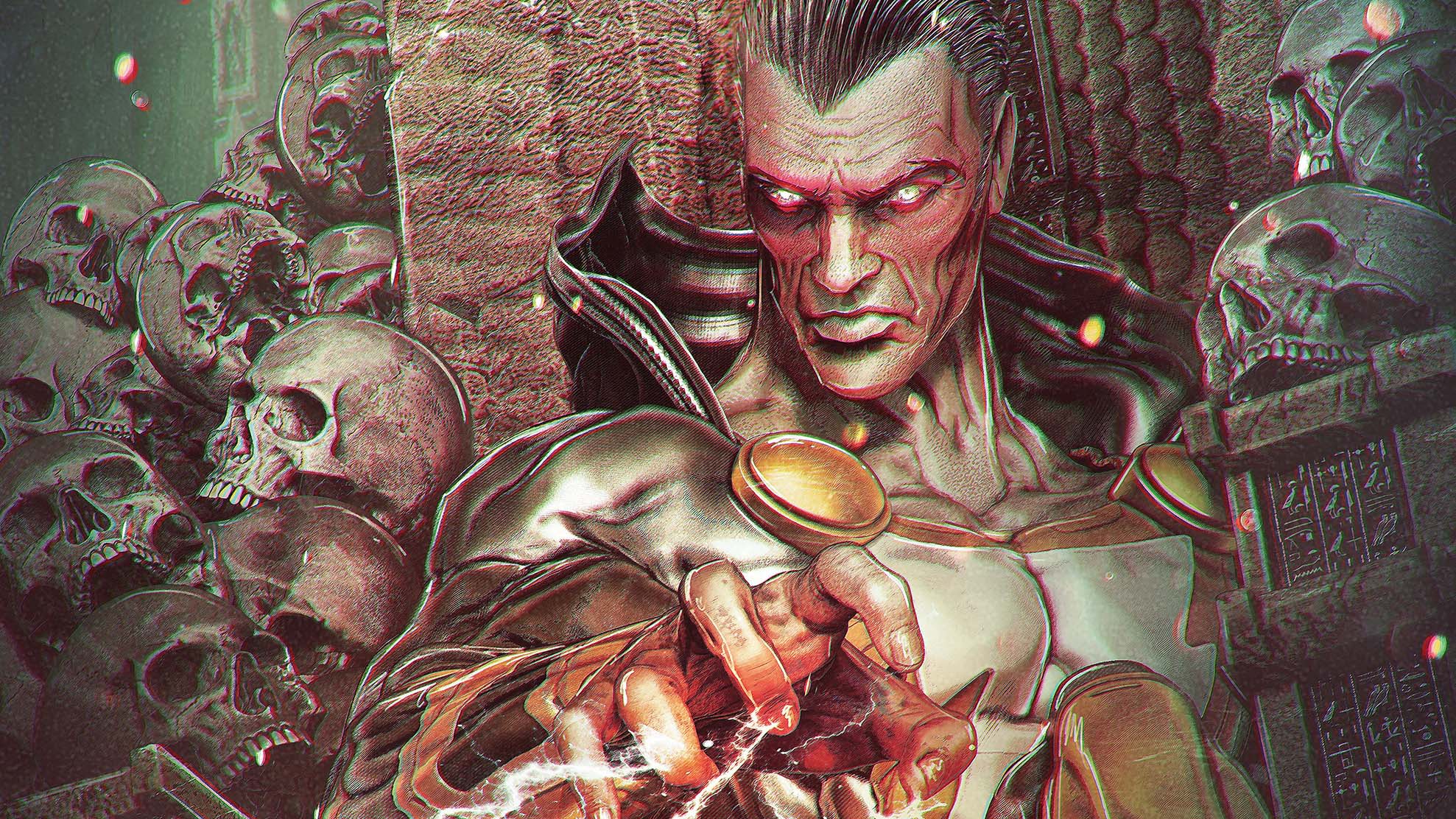
Christopher Priest's Black Adam miniseries reached its conclusion this week.
Over the course of 12 issues, the legendary writer has woven a narrative that tackles profound themes of identity and redemption. The series explores Black Adam's ties to Egypt, his role in the larger DC universe and the tumultuous relationship that the character has with Kahndaq and its people. Through the introduction of Malik White, a symbol of hope and potential atonement, Priest refuses to make Black Adam easily redeemable, embracing the character's complexity and villainy.
In this exclusive interview with Newsarama, Priest discusses his feelings as the book comes to a close, the challenge of bringing Malik White – AKA Bolt – to life and his expectation of leaving a lasting impact on Black Adam's legacy.
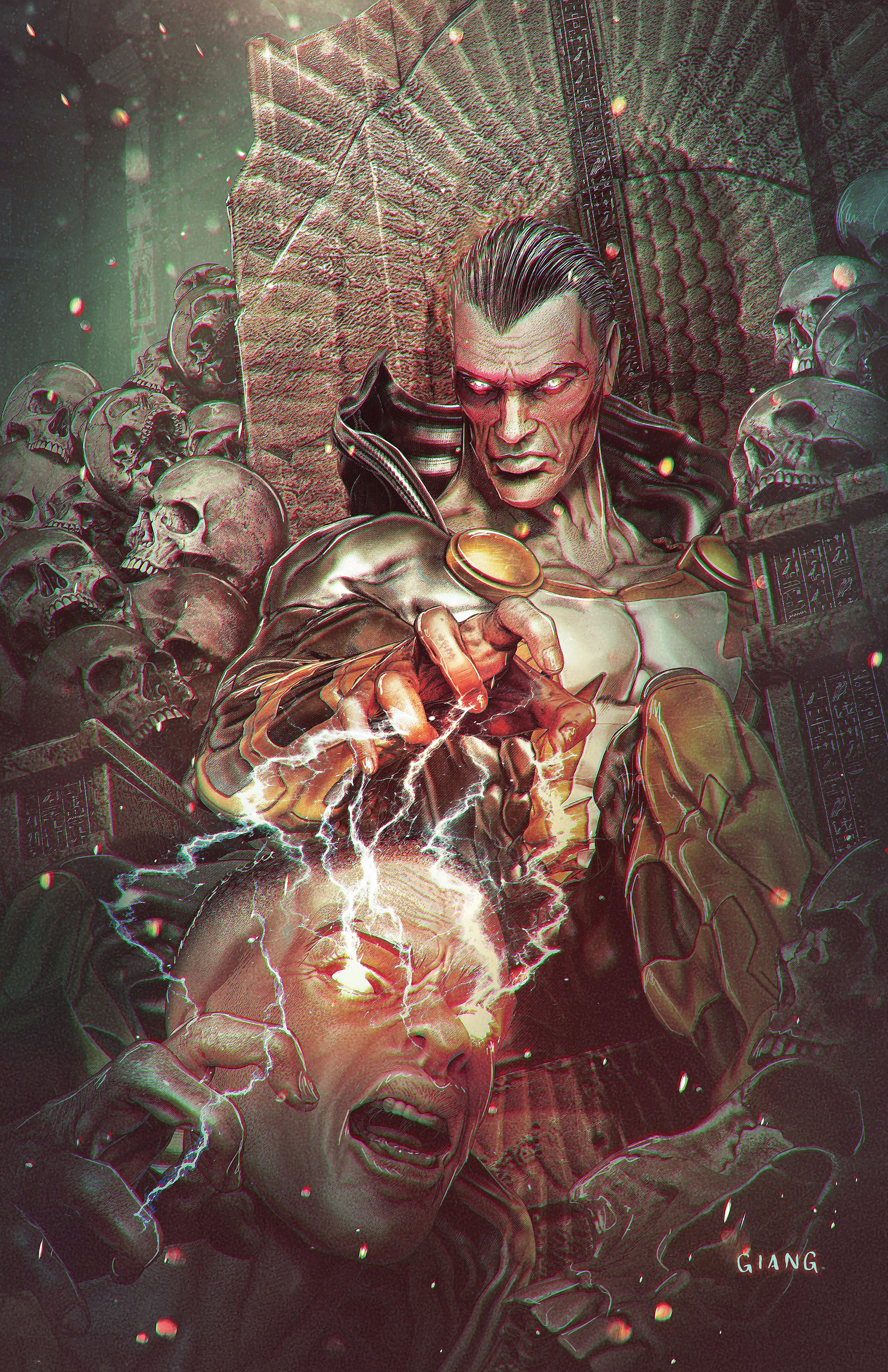
Newsarama: Congratulations on this run of Black Adam. How are you feeling as things wrap up?
Christopher Priest: Well, it was an interesting experience. It was more challenging than I thought it was going to be. But altogether, I think we did great work. I think we did some groundbreaking work with the character and it was a very fulfilling experience.
I know that, when you were talking to your editor about this book, you kind of gave him all the reasons that you shouldn't get the comic because of some of the things that you wanted to do...
Well, oddly enough, a lot of those things that I wanted to do that I thought I would not be allowed to do, I was actually allowed to do. But then, I would get people in trouble.
Paul and the editors would sign off on it, but nowadays, both of the major publishers are owned by these very large corporate interests, and they have this infrastructure in place where stuff goes above DC or outside of DC to get looked at. So, it gets looked at by legal, it gets looked at by sensitivity people and so forth.
DC wasn't the problem, let's put it that way. And to their credit, they fought to get a lot of stuff into that book that people above their heads wanted out. And they pushed back on it, and they fought for us and fought for the book, and I'm very grateful for that.
You're a writer who consistently strives to make your books meaningful and you delve into more political themes. Do you feel like you were able to achieve everything you wanted with that?
Well, first, I didn't know it was a limited series, so I had plotted out a lot of infrastructure for year two. A lot of stuff that happened in the book was stuff that was going to play out in a much broader way down the line.
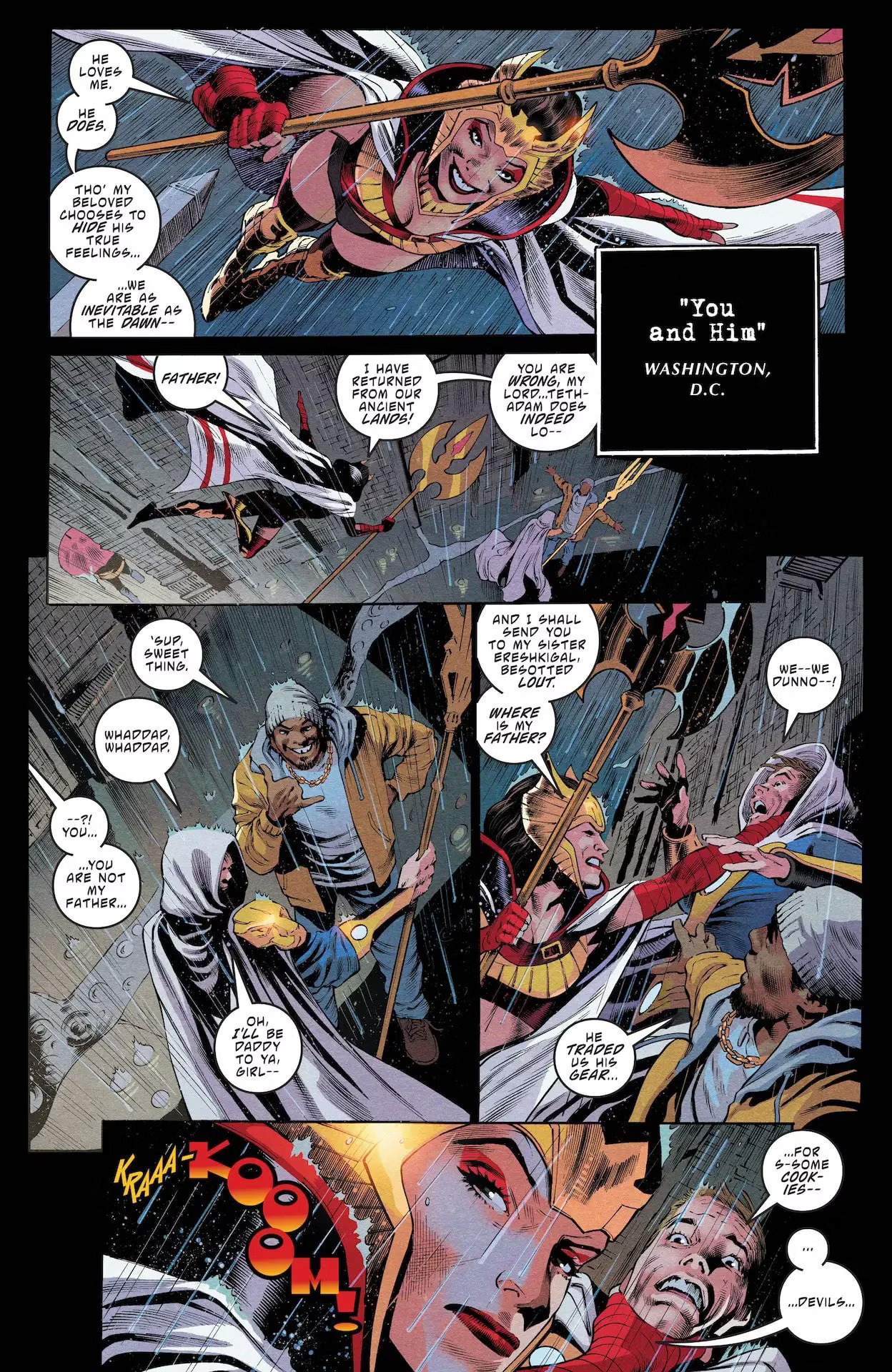
Did that change how you thought about the ending?
Yes and no. The ending was kind of original. I hadn't really had that concept when I started the book, so I really didn't have that in mind. I think we got a lot done that I wanted to get done in terms of exploring these themes, but it's kind of like cave spelunking – at some point, you're deep in the cave and you find a lot of bats or a grizzly bear or kangaroo or something in the cave, and you turn around and go running out of the cave.
I was starting to get people in trouble. It goes out of DC to mystery people and it comes back with notes. So DC has approved it, we're fine. Editorial's, fine. It's not DC, it's mystery people. And that's their job. Their job is to protect the bigger picture of the corporate interest, so we would get these notes back. And what that does is after a while, it beats you down and you just go, 'All right. I'm just not going to go there anymore because it's tiring to have to fight City Hall.'
So I created this character who has those tonalities, and it's very difficult to have a character like that running around the DC universe. Not because of DC, but because DC is owned by a parent company that has interests and sensitivities. So I think, over the course of the book, you could see me or feel me pulling back from those sensitive areas. Even with the political stuff, and things that I wanted to explore, you start feeling me take a step back, a step back because we're down in the cave and there's the kangaroo.

One of the themes of the book has been the fact that there is no redemption for Black Adam. It is such an interesting time for you to write that story, as I'm sure the the movie caused some roadblocks in what you wanted to do...
Yeah, it wasn't the best timing. Because they're trying to present Black Adam in a good light for obvious reasons in the film, but they wouldn't let me read the screenplay. The security was too tight. So I had no idea what was going on in the movie, and I just went, "Well, I'm going to call the shots as I see them."
But yeah, I read this material, I read Black Adam as he was currently being written. I do not know Brian Michael Bendis. I admire him, I think he does some wonderful work. Maybe one day, I'll get to meet him. I have no ax to grind with Brian. I just could not more violently disagree with how he handled the Black Adam character and having him in Justice League.
I would love to put Black Adam on the Justice League. I don't disagree with that idea, but I think that there's no way that Batman would stand next to this guy and embrace him as a partner. Batman had his parents murdered. He hates murderers. Black Adam is a murderer. It's a deal breaker for Batman.
Every writer sees characters and characterization differently. And if you read my Justice League run, people probably found it very controversial because of how I handled the Justice League characters. Because I see them in a very different way, and I see the forced pasteurization, the homogenizing, where all the heroes sort of have the same voice and they all get along.
I'm not saying that that's what Brian did, but I see the Super Friends as being a false idea. As I saw the Justice League, I thought they would all have these points of the diversion in terms of their philosophy and how they see heroism and how they see themselves. And I wanted to find those points of diversion and apply pressure. So, when I read Black Adam in the Justice League, it bothered me that everybody was getting along. I just wanted to pull at that thread and unravel it and have Batman say, "Okay, yeah, I put up with you in the Justice League, but I despise you." Because I think that's how Batman would feel about Black Adam.
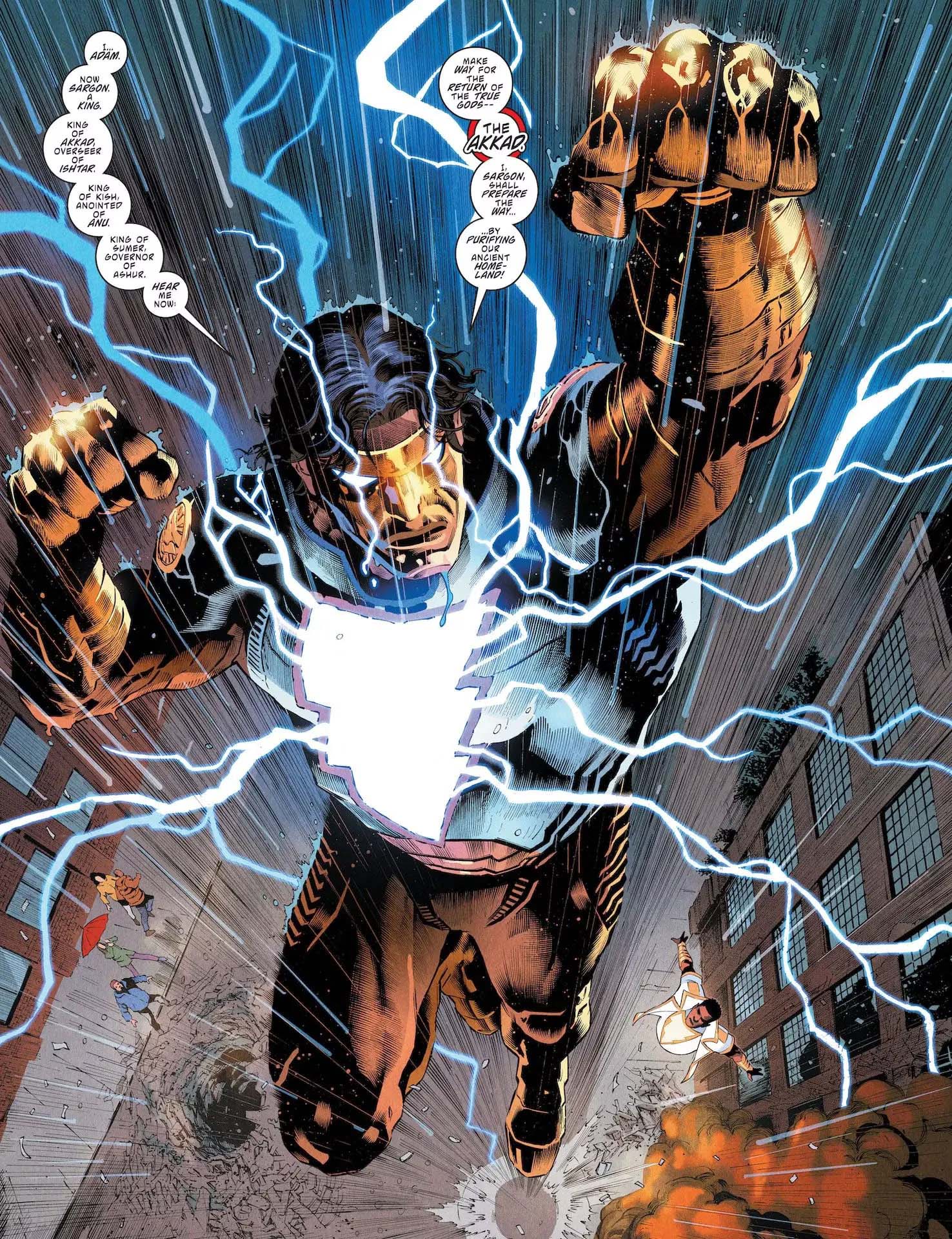
I see it with what you did with the Akkadians. They're newer characters than the Justice League, but you can see the push and pull and how they react to Black Adam in the story.
Yeah. The Akkadians – I created them because I wanted Black Adam to be kind of the asshole Thor of the DC universe, and I wanted him to have his own Asgard. So he goes to this space ziggurat, and here are these characters. Basically, I wanted to use the Egyptian gods, but the Egyptian gods have been so messed up. I'm sorry, with all due respect to much more talented writers who came before me, I couldn't make heads or tails out of the Egyptian pantheon as depicted in the DC Universe. And for me to resurrect the Egyptian Pantheon, I'd have to do too much heavy lifting and go back into too much continuity and would burden the series. So then I thought, "Well, let's use the New Gods."
They're never going to let me use the New Gods. They're just not. I just sat there for a minute and said, "Well, why don't I just create my own New Gods?" And that's who the Akkad are. They're very similar to Kirby's New Gods with a twist. They have their own sort of deal and their own sort of whatever. And they're neighborhood cousins of the Egyptian pantheon, so it's close enough.
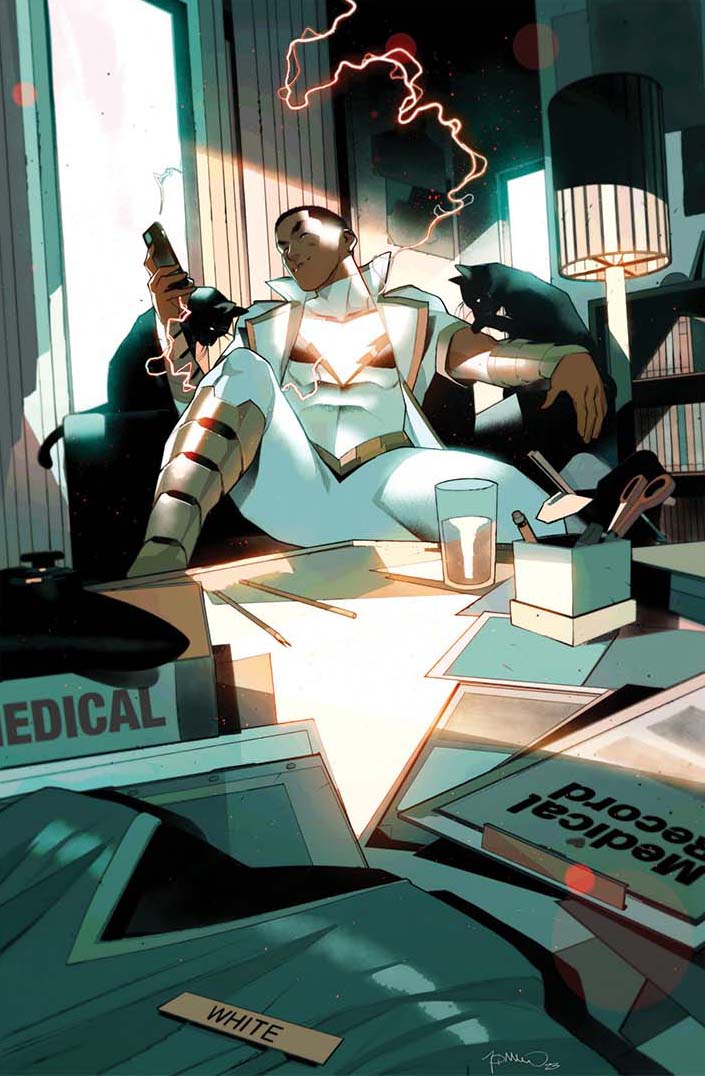
As this limited series comes to an end, do you hope to leave a lasting impact on Black Adam and his mythos overall? What do you hope that readers take away from the end of this?
I have limited expectations about legacy because usually, the next writer comes along and just ignores everything you did. So I'm kind of used to that.
And I think that nowadays, readers are savvy enough to go, "Okay, well this is Tom King's take on Human Target, and this is Christopher Priest's take on Black Adam." And appreciating the work for what it is, as opposed to trying to make it universal and trying to make other people sort of conform or comply with it.
I left a lot of things hanging, like the democracy movement in Kahndaq. And now I've sent Black Adam back to Kahndaq without his humanity. Now what does that mean? Because he wasn't that great a guy with humanity and now he doesn't have that holding him back. And then we got Theo walking around here, what's next for Theo?
And then Malik, which way is Bolt going to go? Black Adam gives him the advice to walk humbly and love justice. Will he walk humbly? Will he love justice? I don't know. And that's kind of out of my hands unless and until I get the email going, "Hey, we're going to re-up on Black Adam." So, you kids, you write in to DC and demand to see what happens with these characters!
But other than that, it goes into the hands of the next writer to come along, and she or he may have a completely different interpretation. And that's kind of how it ought to be, I think.
What else are you working on at the moment?
I'm in the middle of Superman Lost. We're having a great time doing that. I think that's going swimmingly. Very different book from Black Adam. It's not dark Superman Lost, he's the same guy. And we're just having a real blast with that. And then I'm working on a bunch of projects that I can't talk about right now.
Black Adam #12 is available from DC Comics now.
Find out about Black Adam's powers and comic book history here.







